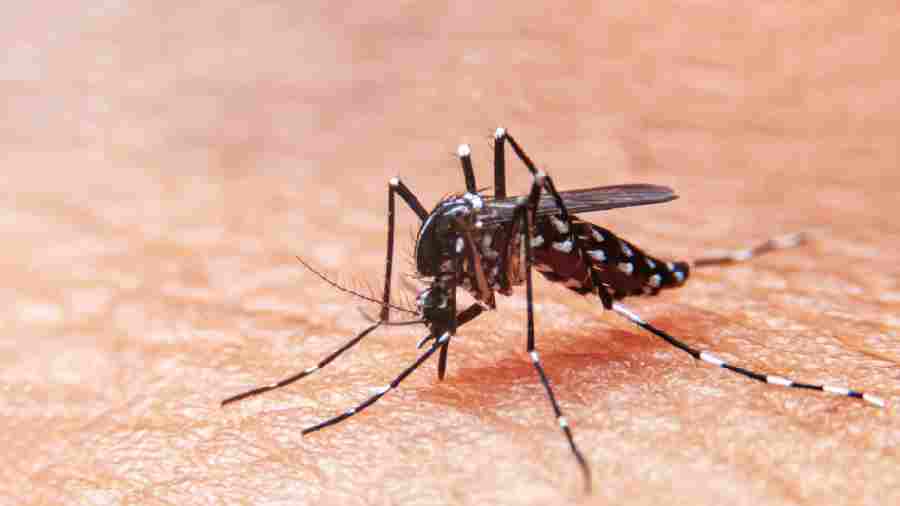The drizzle through much of Monday was ideal for the creation of mosquito-breeding sites and it is likely to prolong the ongoing surge in dengue infections, doctors and an entomologist said on Sunday.
The Alipore Met office recorded 5mm of rain between 8.30am and 8.30pm on Monday. A rise in the mosquito population means more people are at risk of contracting dengue, which is caused by a virus transmitted by Aedes aegypti mosquitoes.
The Aedes mosquitoes can breed even in a spoonful of stagnant water. The Kolkata municipal area reported 4,004 dengue infections between January and the second week of October. An official of the state health department said 823 fresh dengue cases were detected across the state on Monday.
Intense and heavy rain washes away mosquito larvae, while drizzle, like what Kolkata witnessed on Monday, creates mosquito breeding sites. “Monday’s rain will extend the current phase of high number of dengue infections, as there could be a surge in the mosquito population. As long as it rains, there is a likelihood of rise in the number of mosquito-breeding sites,” said a senior official of the Kolkata Municipal Corporation (KMC). An official of the state health department said they expected the current surge in dengue infections to continue till November.
“The Aedes aegypti mosquito can breed even in a drop of water. Small containers like earthen tea cups, plastic cups in which ice cream is sold or small paper cups can turn into breeding sites if water remains accumulated in them for six or seven days,” said Amlan Das, an associate professor of Zoology at Calcutta University, whose research interests include entomology (study of insects).
Tens of thousands of people used and discarded such cups during Diwali. If some of the cups are not removed and lie hidden in a corner of a road, they can turn into mosquito-breeding sites. Das said that a pupa of an Aedes mosquito can survive in a dry container for several months. When the pupa again comes in contact with water, it grows into an adult mosquito.
